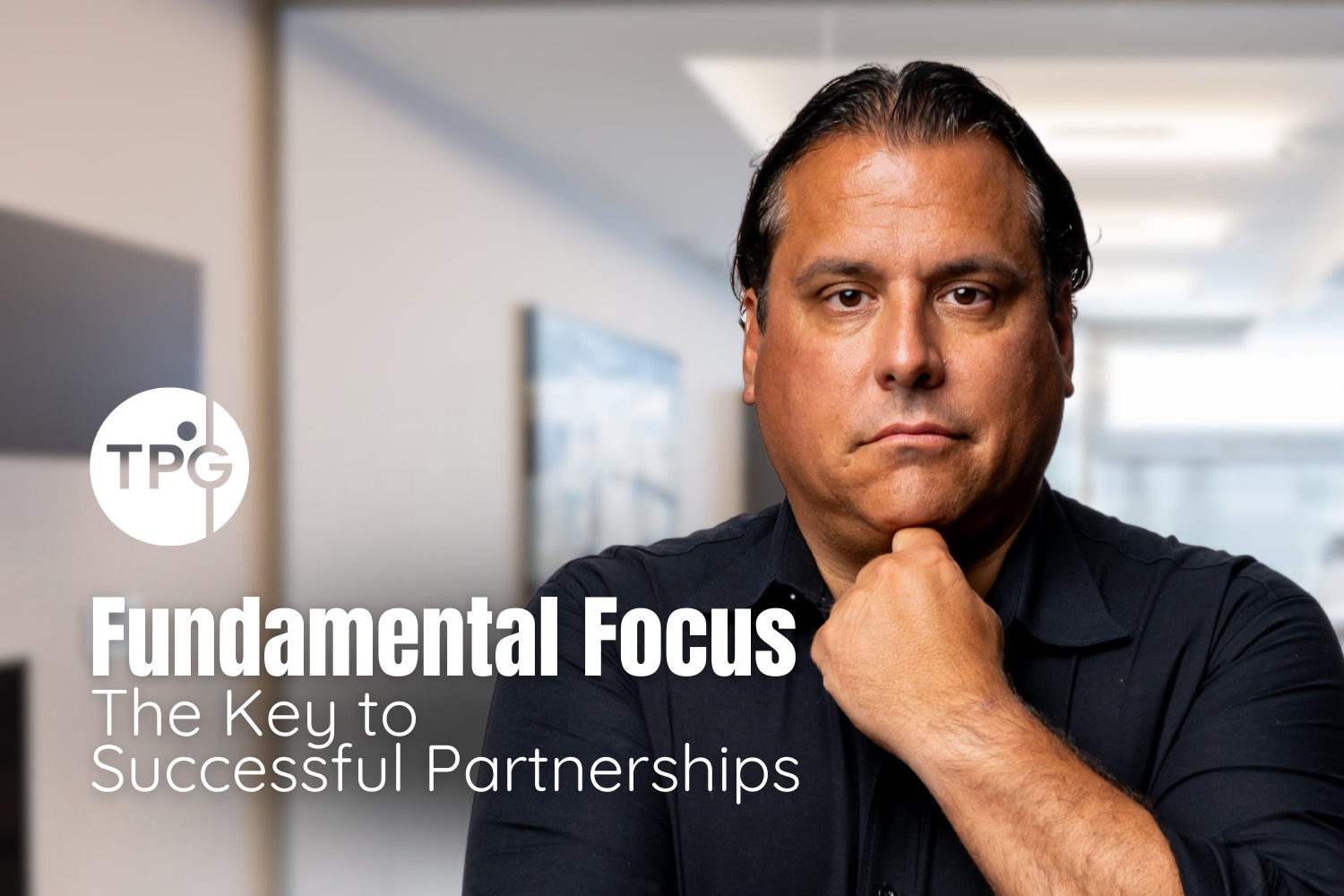Finding Your Fundamental Focus
By Todd Leonardis
When Steven and I first went into business, we knew it wouldn’t be enough to just bring our skills and ambition to the table. Yeah, those things matter, but we quickly learned that running a business together would require something more personal—something we now call Fundamental Focus.
Finding the "Why" Beneath the Work
Steven and I didn’t jump into this with the mindset of “Let’s make as much money as possible and see what happens.” We had to go deeper than that. I mean, sure, profits are great, but they can’t be the only goal. So we sat down early on and started talking about what we really wanted out of life—what made us tick and what success actually looked like for each of us, both personally and professionally.
That’s when we realized the importance of what we now call Fundamental Focus. It’s not just about work goals or day-to-day tasks; it’s about understanding what’s most important to us in life and figuring out how the business can help us get there.
For us, Fundamental Focus means identifying the personal priorities that drive everything we do—inside and outside the office. And, let me tell you, once you understand your focus, it makes every business decision that much clearer.
Different Lives, Different Priorities
When Steven and I started our first company more than 20 years ago, we were in very different places. I was single and throwing myself into the business with everything I had. Meanwhile, Steven had a young family at home, which meant his schedule and priorities looked pretty different from mine.
But instead of letting those differences get in the way, we leaned into them. Understanding each other’s personal priorities—our Fundamental Focus—helped us avoid potential conflicts. I knew when Steven needed to be home for his kids, and he knew when I needed to burn the midnight oil to keep things running smoothly.
Our differences didn’t weaken the partnership; they gave us perspective. They allowed us to balance each other out, which made us stronger as a team.
Aligning Focus (Without Matching It)
Here’s the thing: you don’t need a business partner who’s just like you. Honestly, that sounds boring. What matters is that you understand each other’s priorities and support them.
Steven and I didn’t—and still don’t—share the same focus all the time. For example, Steven’s happy when he’s out there marketing and building relationships. That works for him because his Fundamental Focus has always included having time with his family. Meanwhile, I’m more comfortable in the office, developing systems and managing operations. That fits with my focus on creating and building something meaningful.
But life happens. As things changed—like when I started a family of my own—Steven picked up extra slack so I could find my own version of work-life balance. We didn’t plan for that from the start, but because we knew each other’s priorities, we could adjust along the way.
Goals vs. Outcomes: Know the Difference
One of the biggest lessons we’ve learned is this: don’t confuse outcomes with goals. This might sound a little philosophical, but stay with me. Outcomes are the tangible things we aim for—like buying a big house or landing a major client. But goals? Those are the real motivators behind the outcomes. Owning a big house might just be a way to feel financially stable or create a safe space for your family. The house is an outcome; stability and security are the goals.
For us, making money has never been the goal. Instead, it’s been the means to achieve things that truly matter—whether that’s building something we’re proud of or having time for the people we care about. Once we figured that out, the business decisions became easier. Every move we made had to align with our deeper goals, not just the outcomes we were chasing.
Don’t Fight the Differences—Embrace Them
There’s this idea that great partnerships are built on similarities. In my experience, that’s not entirely true. Sure, you want to have some things in common, but trying to find someone exactly like you? Good luck with that.
The truth is, partnerships thrive when you embrace the differences. Steven and I have very different skill sets, interests, and even life experiences, but instead of trying to align on everything, we use those differences to our advantage. That’s why we’ve been able to build something that works—for both of us.
Keep the Conversation Going
One of the smartest things Steven and I did was make our Fundamental Focus an ongoing conversation. Life changes. Priorities shift. What worked five years ago might not work today. That’s why we make a point to sit down every year and revisit our focus.
These annual reviews aren’t just formalities—they’re essential. They give us a chance to talk about how things are going, what’s changed, and how we can keep supporting each other. It’s not just about making sure the business is on track—it’s about making sure we’re both happy with where things are headed, both professionally and personally.
The Bottom Line
At the end of the day, business partnerships are about more than spreadsheets and strategy meetings. They’re about understanding each other’s priorities and figuring out how to support them. That’s what Fundamental Focus is all about.
Our partnership works because we’re not just in it for the profits. We’re in it to build something meaningful—something that aligns with the bigger picture of what we each want out of life. If you want a partnership that lasts, you need to understand that it’s not about finding someone just like you—it’s about finding someone who gets what matters to you.
If you’re looking for more insight on building a solid business partnership, reach out to us at The Partnership Guys. We’re happy to chat—maybe over coffee, though Steven’s the only one who makes it right (my version is a little... experimental).

